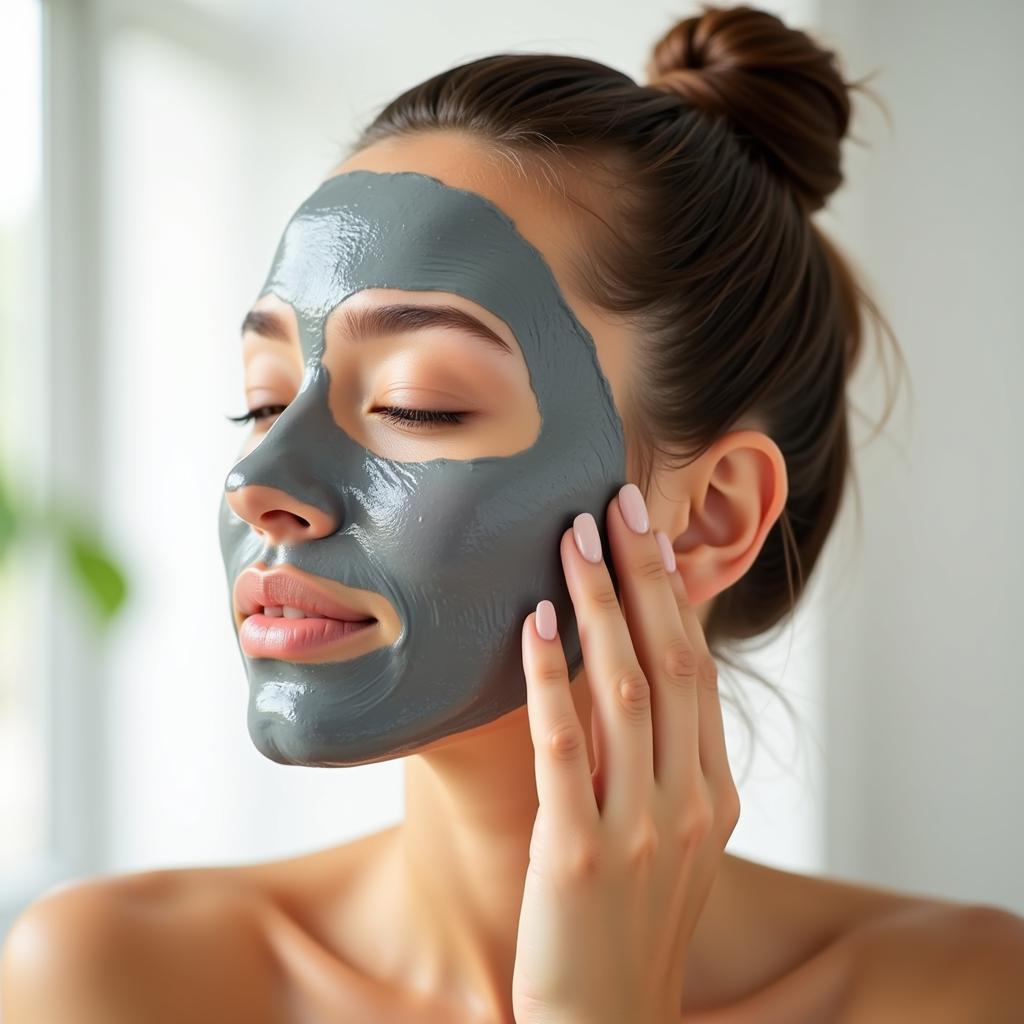Bentonite Clay Food Grade is a naturally occurring substance with a variety of potential health and beauty benefits. From internal detoxification to external skin treatments, this versatile clay has gained popularity for its purported ability to absorb toxins and improve overall well-being. Let’s explore the world of bentonite clay and discover its many applications.
What is Bentonite Clay Food Grade?
Bentonite clay is formed from volcanic ash and is rich in minerals like calcium, magnesium, and iron. The “food grade” designation signifies that the clay is safe for internal consumption and meets specific purity standards. It’s important to note the distinction between food grade and industrial grade bentonite clay, as the latter can contain impurities unsuitable for ingestion.
The Science Behind Bentonite Clay’s Detoxifying Properties
Bentonite clay’s detoxifying power lies in its unique structure. When mixed with water, it develops a negative electrical charge, attracting positively charged toxins, heavy metals, and impurities. This allows the clay to bind to these substances, potentially aiding their removal from the body. Research on the effectiveness of bentonite clay detoxification is still ongoing, but anecdotal evidence and traditional use suggest potential benefits.
How Does Bentonite Clay Work Internally?
When ingested, food grade bentonite clay is believed to travel through the digestive tract, binding to toxins and carrying them out of the body. Some proponents suggest it can help with digestive issues, improve nutrient absorption, and boost the immune system. However, more scientific research is needed to fully understand these potential benefits.
External Uses of Bentonite Clay Food Grade
Bentonite clay is not just for internal use. It’s also a popular ingredient in various skincare products and treatments.
Bentonite Clay for Skin Health
When mixed with water to form a paste, bentonite clay can be applied topically as a face mask or body wrap. It’s believed to draw out impurities from the skin, helping to treat acne, reduce inflammation, and improve overall skin tone.  Woman applying a bentonite clay face mask
Woman applying a bentonite clay face mask
Bentonite Clay for Hair Care
Bentonite clay can also be used as a natural hair cleanser. It’s believed to absorb excess oil and dirt, leaving hair feeling clean and refreshed. Some people even use it as a natural alternative to shampoo.
Choosing and Using Bentonite Clay Food Grade Safely
When purchasing bentonite clay for internal use, always ensure it is labeled as “food grade.” Start with small doses and gradually increase as needed. Consult with a healthcare professional before incorporating bentonite clay into your diet, especially if you have any underlying health conditions or are taking medications.
Preparing Bentonite Clay for Internal Use
Mix one teaspoon of food grade bentonite clay with 6-8 ounces of water and drink it on an empty stomach. It’s important to use non-metallic utensils when handling bentonite clay, as metal can interfere with its electrical charge.
What are the potential side effects of using bentonite clay food grade?
While generally considered safe, bentonite clay can cause some mild side effects like constipation, especially if not taken with enough water. It’s also important to be aware that bentonite clay can interfere with the absorption of certain medications.
Dr. Emily Carter, a registered dietitian, advises, “Bentonite clay can be a helpful addition to a healthy lifestyle, but it’s crucial to use it responsibly. Always choose food grade clay and consult with a healthcare professional before incorporating it into your diet.”
Professor John Miller, a leading researcher in natural remedies, adds, “While more research is needed to fully understand the benefits of bentonite clay, its traditional use and anecdotal evidence suggest it has the potential to support overall well-being.”
Conclusion
Bentonite clay food grade offers a range of potential benefits, from internal detoxification to external skin and hair care. While further scientific research is needed to confirm its efficacy, its unique properties and traditional use suggest it can be a valuable addition to a holistic health approach. Remember to choose food grade bentonite clay and consult with a healthcare professional before using it internally.
FAQ
- What is the difference between food grade and industrial grade bentonite clay?
- How often should I consume bentonite clay internally?
- Can I use bentonite clay on sensitive skin?
- What are the signs of a bentonite clay allergy?
- Where can I buy food grade bentonite clay?
- Is bentonite clay safe for pregnant women?
- Can bentonite clay interact with medications?
Need more help?
For further assistance and information, please contact us at Phone Number: 02437655121, Email: minacones@gmail.com Or visit our address: 3PGH+8R9, ĐT70A, thôn Trung, Bắc Từ Liêm, Hà Nội, Việt Nam. We have a 24/7 customer service team.